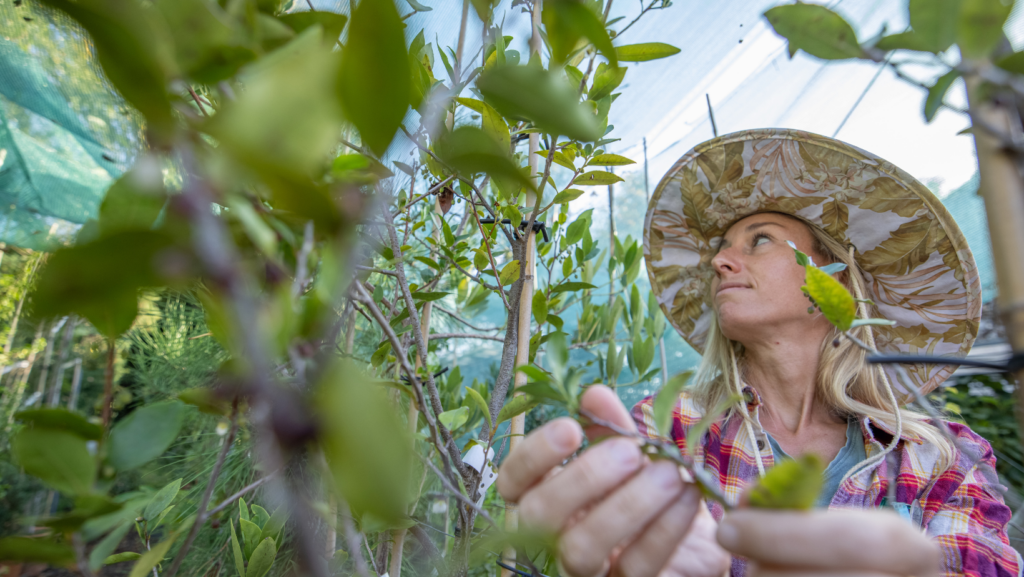In today’s eco-conscious world, the prefix “eco-” has become a beacon for sustainability, signaling products, practices, and lifestyles that support environmental health. This small but mighty prefix roots in the Greek word “oikos” meaning “house” or “home,” which has evolved to represent a global movement towards living in harmony with our planet. As consumers become more environmentally savvy, they’re turning to eco-friendly alternatives that promise lower impacts on our earth without wireless deals. Understanding the significance of “eco-” helps consumers make informed choices. Whether it’s eco-friendly, eco-conscious, or eco-savvy, each term guides individuals towards decisions that contribute to a sustainable future.
Prefixes Related to Sustainability Living
Examples of Common Sustainable Prefixes
 The use of prefixes in sustainability not only adds descriptive power but also aligns products, services, and lifestyles with environmentally friendly values. In addition to “eco-“, several other prefixes play pivotal roles in the sustainable landscape:
The use of prefixes in sustainability not only adds descriptive power but also aligns products, services, and lifestyles with environmentally friendly values. In addition to “eco-“, several other prefixes play pivotal roles in the sustainable landscape:
- Bio-: Derived from the Greek word “bios” meaning life, “bio-” refers to life or living systems. Products labeled as biodegradable, bio-based, or biodiversity-focused highlight their natural, life-supporting characteristics.
- Green-: Often used interchangeably with eco-, “green-” signifies practices or products that have minimal harmful impacts on the environment. Examples include green building, green energy, and green technology, each promoting more sustainable living practices.
- Organo-: Originating from the Greek “organikos”, meaning organ or instrument, organo- typically refers to organic methods or materials that are free from synthetic additives. Organo-agriculture and organo-foods are common terms seen in markets emphasizing health and ecological benefits.
- Sustaina-: A fairly recent addition, “sustaina-” underscores the ability to maintain or support over the long term without depleting resources. Sustaina-built or sustaina-practices are terms that highlight durability and long-term environmental stewardship.
Moreover, these prefixes, when affixed to words, indicate a commitment to environmental health and conscious living, guiding consumers toward more sustainable choices and fostering a deeper connection with the environment.
Exploring Eco-Friendly Prefixes
 Eco-friendly prefixes play a crucial role in steering consumer behavior toward sustainability. They embody shared commitments to reducing environmental impacts. This section delves deeper into how these linguistic elements foster a culture of conservation and awareness. Eco-friendly expressions like “eco-friendly,” “eco-conscious,” and “eco-savvy” integrate seamlessly into daily vocabulary, promoting sustainable living. By examining the semantic weight of these prefixes, individuals gain insights into their profound influence on eco-conscious decision-making. These prefixes serve as constant reminders of the importance of environmental stewardship and motivate people to engage in meaningful actions that respect the planet’s health. Throughout the eco-friendly prefixes, societies affirm their dedication to sustainable practices, ensuring a healthier environment for future generations.
Eco-friendly prefixes play a crucial role in steering consumer behavior toward sustainability. They embody shared commitments to reducing environmental impacts. This section delves deeper into how these linguistic elements foster a culture of conservation and awareness. Eco-friendly expressions like “eco-friendly,” “eco-conscious,” and “eco-savvy” integrate seamlessly into daily vocabulary, promoting sustainable living. By examining the semantic weight of these prefixes, individuals gain insights into their profound influence on eco-conscious decision-making. These prefixes serve as constant reminders of the importance of environmental stewardship and motivate people to engage in meaningful actions that respect the planet’s health. Throughout the eco-friendly prefixes, societies affirm their dedication to sustainable practices, ensuring a healthier environment for future generations.
The Role of Biodegradable and Recyclable Prefixes
 Biodegradable and recyclable prefixes play crucial roles in emphasizing responsible consumption and waste management. Prefixes such as “bio-” and “re-” signal products designed with environmental sustainability in mind. Products labeled as “biodegradable” break down naturally, returning to the earth without leaving harmful residues. Items identified as “recyclable” support resource conservation, ensuring materials like paper, plastic, and metal are reprocessed and reused, rather than accumulating in landfills.
Biodegradable and recyclable prefixes play crucial roles in emphasizing responsible consumption and waste management. Prefixes such as “bio-” and “re-” signal products designed with environmental sustainability in mind. Products labeled as “biodegradable” break down naturally, returning to the earth without leaving harmful residues. Items identified as “recyclable” support resource conservation, ensuring materials like paper, plastic, and metal are reprocessed and reused, rather than accumulating in landfills.
These prefixes align with eco-friendly practices by helping consumers make informed choices that align with their values toward environmental preservation. By opting for products with these prefixes, individuals contribute actively to reducing waste and promoting ecological cycles that sustain a healthier planet. Thus, biodegradable and recyclable products not only lessen environmental impact but also foster a culture of sustainability and resource mindfulness.
Prefixes and Renewable Energy Sources
Adopting prefixes like “eco-,” “bio-,” and “green-” has proven effective in steering both manufacturers and consumers towards more sustainable practices. These linguistic markers are not just trends—they’re beacons of a global movement toward environmental stewardship. By choosing products adorned with these prefixes consumers are actively participating in a larger dialogue about sustainability. They’re not just purchasing items; they’re investing in the future of the planet. Thus, this subtle yet powerful vocabulary continues to shape the landscape of consumer choices fostering a more sustainable world one purchase at a time.

